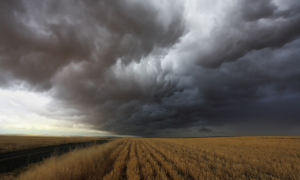The terrorist attacks of 11 September 2001 created a number of horizontal scenarios that changed the world forever. Anyone who travels bumps up against some of these changes on a routine basis. They also changed the security environment, where terrorism went from being a criminal activity to “war.” They also changed many people’s perception of Islam. Political Islam, which has successfully highjacked the agenda for an entire religion, is more and more often pointed to as the “enemy” confronting the developed world. Unfortunately, this stereotyping of Islam has also resulted in some irrational concerns on the part of many politicians. This was first demonstrated when Dubai Ports World attempted to purchase port operations in New York City. New York is certainly justified in being security sensitive, but the message that the uproar over DP World’s plans created was clear — we don’t trust any Muslim.
If the Iraq war has taught the American public anything about Islam, it is that the Muslim world is not a homogenous group of people who all share the same political agenda or even religious agenda. Like Christians, Muslims are divided into feuding groups and there are both religious fanatics and non-practicing skeptics. There are illiterate Muslims and there are those that have PhDs. There are farmers and there are businessmen. There are Muslims who hate the United States and there some, like those in Kurdistan, who love the United States. Yet Muslims are often lumped into the same group. Anyone who has been to Dubai understands how different people living there are from those living in Sadr City or the frontiers of Pakistan. I have written a couple of posts about Dubai [On Becoming a Tiger and Attracting FDI and Creating a Brighter Future in Dubai]. The fact of the matter is DP World is one of the largest marine terminal operators in the world with 42 terminals and 13 new developments across 27 countries. Not all of those countries are in the Middle East. In fact, DP World is truly a global company that continues to be trusted around the world — except, it seems, in the United States.
Now, a new storm is brewing over a different group of Dubai investors [“Dubai to Buy Large Stake in NASDAQ,” by Joseph B. Treaster, New York Times, 20 September 2007].
“The government-controlled stock exchange in Dubai, the fast-growing Middle East business center, is expected to announce today in Stockholm that it plans to take significant ownership in the Nasdaq stock exchange in New York and the London Stock Exchange, people who have been briefed on the transaction said last night. If the deal is completed, Dubai would become the first Middle East government to own a large stake in an American stock exchange. It also is expected to become the largest single investor in Nasdaq. The deal by the Borse Dubai would give Dubai a stake of 20 percent to 30 percent in Nasdaq, the largest electronic stock market in America, and about 30 percent in the London Stock Exchange, according to people who have been briefed. In exchange, Dubai would hand over to Nasdaq the OMX Group, a stock exchange based in Stockholm that also operates in Helsinki, Copenhagen and several other countries in Scandinavia and the Baltic States.”
On the face of it, this looks like a reasonable deal for NASDAQ, which lost a bidding war to obtain OMX to Borse Dubai. NASDAQ has demonstrated that it wants a European presence and this deal would make that dream come true.
“Stock markets around the world are combining or buying stakes in each other to meet clients’ demands to trade shares of companies anywhere, at a faster pace, across different asset classes and for less money. Combinations also help them save costs in an industry where the largest expense is developing the technology to run trading platforms. But Nasdaq’s efforts to expand have been rebuffed. It bought a 30 percent share in the London Stock Exchange, but its hostile bids to take over the entire London operation were rejected. Then in May, Nasdaq announced that it had reached agreement to buy the OMX Group for $3.7 billion. But in August, Borse Dubai, the parent company of the Dubai International Financial Exchange, which includes the former Dubai Financial Markets, came in with a higher bid.”
Investors should be pleased that Borse Dubai is showing such confidence in NASDAQ, especially considering the weakness of the dollar, but the deal is not being judged on its economic merits.
“Reports of a possible deal brought questions last night from lawmakers in Washington about potential compromises to security in the United States. The concerns were similar to those raised more than a year ago when another Dubai-owned company, DP World, tried to buy a company that managed port operations around the United States, and in 2005, when the Chinese oil company, Cnooc, tried to buy its American rival, Unocal. Both efforts were abandoned under pressure from Congress. Dubai is the commercial and financial center of the United Arab Emirates on the Persian Gulf and has been cited as a transit point for money used to finance terrorism. Senator Charles E. Schumer, Democrat of New York, who helped lead the opposition to Dubai’s investment in the American ports, said last night that the deal, which would make Dubai a major player in New York finance, would ‘raise serious questions that have to be answered. … Should any government own any part of a major U.S. stock exchange?’ asked Mr. Schumer, who is on the banking and finance committees in the Senate and is the chairman of the joint House and Senate economic committee.”
The question that lawmakers should be asking is whether having Muslim investors committed to making America’s economy stronger is going to make the country more or less secure. I would argue that it makes the country more secure. I can assure you that Dubai investors are like investors anywhere; they are not looking to lose money. Any terrorist attack that devalues the NASDAQ or damages the U.S. economy would have a negative impact on them. America would also be more secure because approving Muslim investors would be a welcomed first step in reconciling with the vast majority of Muslims who lament the fact that their religion has been highjacked by extremists. Another rebuff of Dubai investors for no other reason than the fact they are Muslims sends a terrible signal and only reinforces arguments being used by extremists claiming that the U.S. is at war with Islam.
Enterra Solutions’ activity in Kurdistan has made me sensitive to these issues. For the vast majority of companies in the Middle East, business is business. I know that it is in America’s best interests to help make northern Iraq more secure and prosperous. I believe the same holds true for the rest of the Middle East as well.




